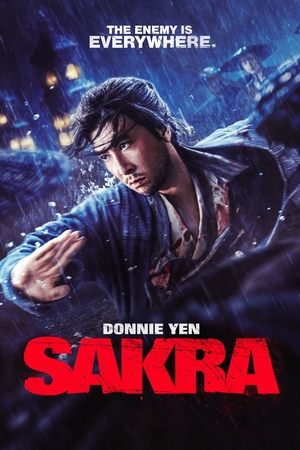Donnie Yen was expected to have gracefully retired by now, considering his 59 years of age, but it’s a good thing he didn’t. His recent performance in “John Wick: Chapter 4” was a standout in the action blockbuster, and now American audiences have the pleasure of witnessing Yen not only in front of the camera but also behind it as the director of “Sakra,” with some guidance from his “Big Brother” collaborator, Kam Ka-wai. The notion of early retirement no longer seems plausible for the revitalized “Ip Man” star.
“Sakra” is a robust and beautifully embellished wuxia martial arts fantasy, adapted from the classic serialized novel “Demi-Gods and Semi-Devils” by genre progenitor Louis “Jin Yong” Cha (1963-1966). Yen’s latest endeavor is more than just a thrilling action spectacle; it’s a testament to his dedication in translating the romantic and fantastical elements of wuxia literature into a captivating live-action experience. While “Sakra” may not be fleet-footed, it surprises with its well-realized star power and faithful adaptation.
In the role of Qiao Feng, a respected leader of the Beggars’ Gang, Yen must defend his honor and life after being wrongly accused of murdering a fellow beggar. The Beggars’ Gang places great importance on loyalty and responsibility, and Qiao’s voluntary retirement aims to uncover the true murderer. During his quest for justice, he crosses paths with Azhu (Chen Yuqi), a servant to the conniving Murong Fu (Wu Yue), and their friendship eventually blossoms into love. Together, they embark on a journey to uncover the mysteries surrounding their missing parents, whose lineage ties them to conflicting clans—the dominant Northern Song dynasty and the invading Khitan, supporters of the Liao dynasty. To find answers, Qiao must face an army of skilled fighters.
Qiao stands apart from Yen’s usual square-jawed heroes. He speaks of “integrity” and “morality” and goes to great lengths to uphold these values, even willing to endure physical pain to save his elder Beggars’ Gang mentors. Yen’s characters typically prioritize their moral compass, a contrast that may challenge some Hong Kong fans due to his pro-Beijing politics. However, what makes “Qiao” and “Sakra” remarkable is how seamlessly the stylized action sequences, complete with martial artists soaring through the air and unleashing energy blasts, integrate with the heightened drama of the film.
Yen appears to draw inspiration from co-producer Wong Jing’s approach, capturing not only the surreal action but also the poetic prose found in wuxia novels. Wong’s productions are known for faithfully translating the nuances and quirks of their respective genres. In an interview with Hong Kong Cinemagic, Wong revealed his encouragement for Stephen Chow to emulate the body language of various anime characters in their star-boosting slapstick comedies. Yen’s understanding of the wuxia genre, shaped by Wong’s influence, retains the authentic cadence and style of Cha’s novel. Rather than modernize the dialogue or visuals, Yen and his co-writers make their characters speak and move in a manner reminiscent of unabashedly pulpy costume dramas. They passionately discuss filial piety and social responsibility between meticulously choreographed action sequences, such as the Powerful Vajra Palm. The action scenes, indeed, are a spectacle, showcasing Yen’s perfect blend of physics-defying wire stunts, dynamic camera work, and computer-enhanced imagery, resembling lavishly animated comic book panels.
“Sakra” is Donnie Yen’s masterpiece, a film that meets his exacting standards. While you may already believe that a long-haired Yen can take down a battalion of foes, “Sakra” adds a fully-developed character to his repertoire. Much like his iconic portrayal of martial arts master Ip Man, Qiao is not an ordinary character. He sips tea with his adversaries before engaging in combat, demonstrating that there are no hard feelings. At times, he even shares mirthless laughter and proclaims, “I’m defending not only this land but also the righteous way of the world!”


